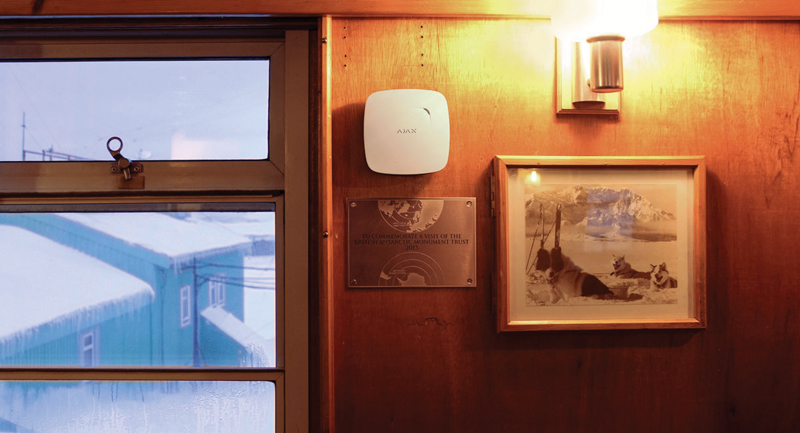 The Vernadsky Research Base, a Ukrainian Antarctic Station, is now equipped with an Ajax security system featuring FireProtect and FireProtect Plus fire detectors. The Ajax equipment was delivered at a distance of 16 thousand kilometres and protects the scientific base in Antarctica.
The Vernadsky Research Base, a Ukrainian Antarctic Station, is now equipped with an Ajax security system featuring FireProtect and FireProtect Plus fire detectors. The Ajax equipment was delivered at a distance of 16 thousand kilometres and protects the scientific base in Antarctica.
The previous fire system had not been upgraded for 36 years (since 1985). The old system malfunctioned and caused false alarms. Some detectors were inoperable. But finding spare parts for them (and getting them to Antarctica) was becoming more difficult.
Fire is a serious problem in the area as most of the buildings at Antarctic stations were built decades ago. These are often small wooden houses with metal panels insulated with foam. When the foam burns, it releases the deadly phosgene gas.
In addition to the Ajax hub (the security system control panel) and two sirens, ten fire detectors were delivered to Galindez Island in West Antarctica. They protect against fire, detect smoke and rapid temperature swings, and also prevent carbon monoxide poisoning.
When connected to the Ajax security system via the secure Jeweller radio protocol, the detectors can operate at distances of up to 1,300 meters from the hub.
Ajax fire detectors will continue protecting even if the station loses access to the Internet or there is no one to monitor alarms. The devices can operate independently from the system control panel. Even if there will be no connection with the hub, detectors will recognise the threat, and the built-in sirens will alert the danger. The siren volume is 85 dB to wake up even those who fast asleep.
The system will also operate when the temperature in the station premises drops to +11-12°C, which happens when there are strong winds. The detector’s operating temperature ranges from 0°C to +65°C.
Finally, the autonomous operation period of the detectors is up to four years meaning that regular maintenance site visits to the remote location will not be necessary.


